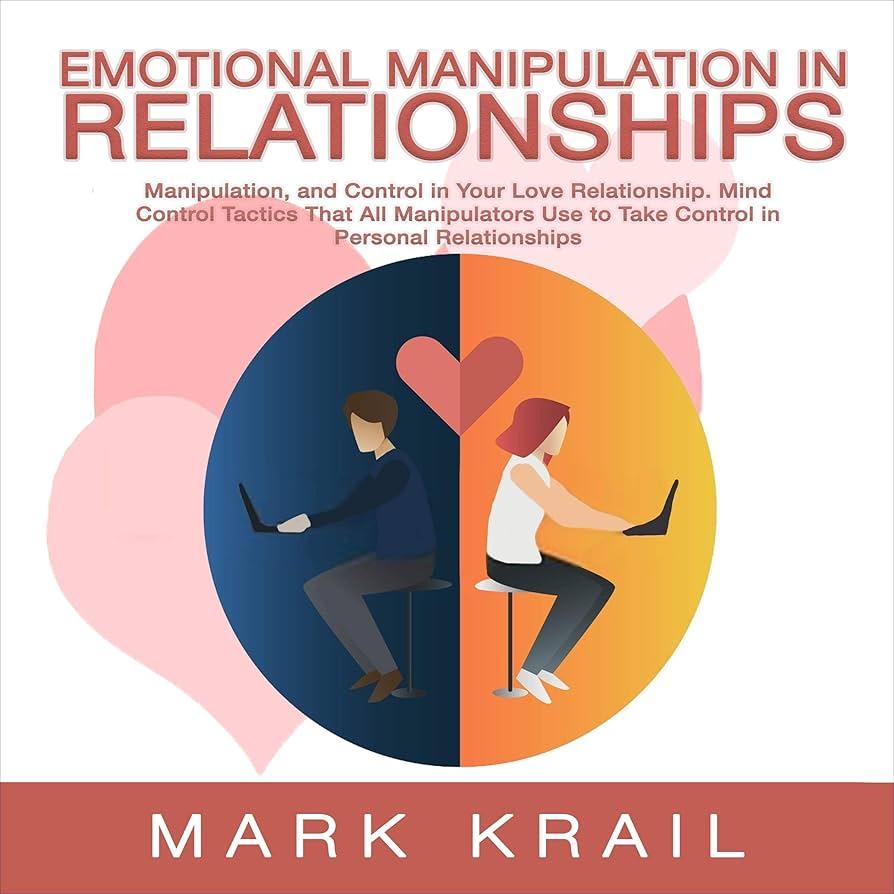In the thrilling yet often unpredictable world of dating, the early stages are filled with excitement, discovery, and the promise of new connections. Yet, beneath the surface of charming conversations and shared laughter, there can lurk subtle currents of emotional manipulation. Recognizing these signs early can save individuals from heartache and ensure healthier relationships. This article delves into the nuanced art of identifying emotional manipulation in its infancy, offering insights and strategies to help navigate the dating landscape with clarity and confidence. By understanding these subtle cues, daters can empower themselves to build connections that are not only romantic but also respectful and genuine.
Spotting Subtle Red Flags in Romantic Interactions
In the early stages of dating, it can be challenging to differentiate between genuine affection and subtle forms of emotional manipulation. Yet, being able to identify these signs early can save you from heartache down the road. Here are some behaviors to watch out for:
- Excessive Flattery: While compliments can be sweet, be cautious if they feel overwhelming or insincere. This can be a tactic to lower your defenses.
- Inconsistent Communication: If they alternate between intense communication and unexplained silence, it might be a method to keep you off-balance.
- Playing the Victim: Notice if they frequently shift blame or portray themselves as the victim in most scenarios. This can be a way to manipulate your sympathy.
- Gaslighting: Be wary if they dismiss your feelings or memories, making you question your perception. This is a classic manipulation strategy.
- Isolation Attempts: Pay attention if they subtly discourage you from spending time with friends or family, aiming to become your sole focus.
Recognizing these signs requires a keen sense of observation and trust in your instincts. Stay alert to ensure your emotional well-being is prioritized in any budding relationship.
Decoding Emotional Cues: What to Watch For
In the delicate dance of early dating, understanding emotional cues can be your best ally. One significant indicator of emotional manipulation is inconsistent communication. If a person frequently alternates between intense affection and aloofness, it might be a deliberate tactic to keep you on edge. This unpredictability can create a sense of dependency, leaving you yearning for their approval. It’s essential to trust your instincts when such patterns emerge, as they often signal a deeper issue at play.
Another red flag is excessive flattery that feels more like a performance than a genuine compliment. While everyone appreciates kind words, over-the-top praise might be used to disarm you, creating a false sense of security. Watch out for these signs:
- Compliments that seem rehearsed or exaggerated.
- Frequent changes in their tone or behavior, especially in response to your reactions.
- A tendency to make you feel guilty or overly responsible for their emotions.
By staying alert to these emotional cues, you can better navigate the complexities of early relationships, ensuring that your connections are built on trust and authenticity.

Building Emotional Awareness for Healthier Relationships
Recognizing the subtle signs of emotional manipulation early in dating is crucial for building healthier relationships. It’s important to be aware of certain behaviors that might initially seem harmless but could indicate manipulation. Pay attention to frequent guilt-tripping; if your partner consistently makes you feel responsible for their emotions or happiness, it could be a red flag. Another sign is inconsistent communication—where your partner alternates between being overly attentive and suddenly distant, creating confusion and self-doubt.
- Excessive Flattery: While compliments are normal, over-the-top flattery can be a tactic to lower your guard.
- Boundary Testing: Notice if your partner frequently pushes your limits, dismissing your concerns or feelings.
- Playing the Victim: Watch for a pattern where they always seem to be the wronged party, shifting blame to you or others.
- Isolation Tactics: Be cautious if they subtly encourage you to distance yourself from friends and family.
Building emotional awareness means trusting your instincts and recognizing these patterns early. By doing so, you can foster relationships built on mutual respect and understanding, free from the shadows of manipulation.

Practical Strategies to Guard Your Heart
When navigating the early stages of a relationship, it’s crucial to be equipped with practical strategies to protect your emotional well-being. One effective approach is to establish and maintain clear boundaries. Be upfront about your personal values and limits, and observe how your partner reacts to them. A respectful partner will appreciate your boundaries, while a manipulative one might attempt to dismiss or trivialize them.
- Trust Your Instincts: Pay attention to feelings of discomfort or unease. These emotions often signal that something isn’t right.
- Seek Consistency: Be wary of individuals whose words and actions frequently misalign, as this can be a tactic to confuse and control.
- Stay Connected: Maintain strong relationships with friends and family. They can offer valuable perspectives and support, helping you see situations more clearly.
Another key strategy is to prioritize open communication. Encourage honest dialogue and express your feelings without fear. If you find your partner consistently invalidating your emotions or shifting blame, it may be a red flag. By recognizing these patterns early, you empower yourself to make informed decisions about your emotional investment.








